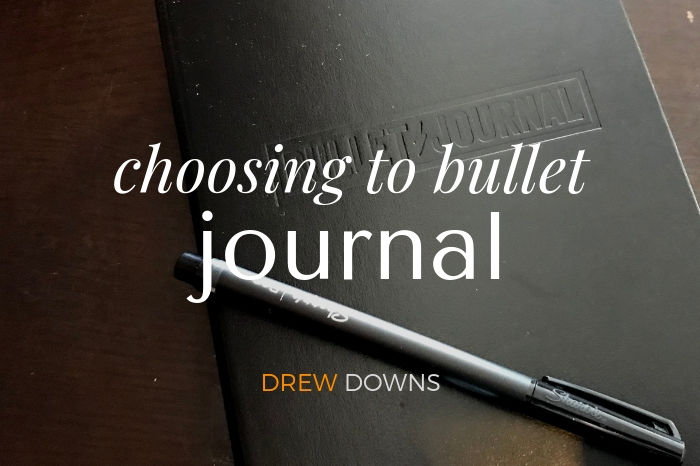As a disorganized, aloof leader, the bullet journal gives me something no productivity system can: the freedom to make it mine.
I’m not what you would call organized. I make piles. Books, papers, emails: literal and virtual.
While I’ve always known this about myself, I rarely accept it. I push myself to be a person of action and decision: organized inside and out. And I’m eternally surprised when the brute force approach to willing a new me out of me just doesn’t work.
So it comes as less and less of a surprise each time I discover and discard new systems of productivity with great regularity.
But somehow, this one has been different.
For the last year, I’ve been bullet journalling and I find it both fool-proof and rejection resistant.
How is this one different? It is based on working with your brain rather than against it.
What is a Bullet Journal?
The simple response is that it isn’t a thing, but a system. Any notebook and pen can become a bullet journal.
But to truly answer the question, we need to back up and see what we already think it is supposed to be.
When we’re looking to improve our productivity, where do we look for help?
We start with a new day planner or calendar book. And when the cheap ones don’t magically work, we go to Franklin Covey. We get a guide to help set goals and read David Allen’s Getting Things Done. Then we get apps to help establish good habits and break bad ones.
And when all these things fail to deliver the magic goods of true productivity, like a bag of magic beans, we become cynical and skeptical of any of it.
At least this is what I did for 15 years.
So a few years ago, I started thinking outside of that box and looked for new systems. I carried notecards. There is a whole system of cards and a binder clip I tried out. Then I tried narrowing my life down to the essential three things.
I tried out other people’s organizing strategies. I printed out sheets and punched them into a binder. Most of them had great ideas, but none of it stuck.
I finally came to the bullet journal. More than once, actually. It seemed hard or weird or too much. So I shelved the idea for a while.
I was wrong. It wasn’t too much, but profoundly simple:
- It was simple enough to just do every day.
- There was no guilt for missing a day.
- I loved having everything at my fingertips.
- It mocks the idea of a perfect system.
- My bullet journal will be what I want it to be.
To learn more about bullet journaling, go to the website. Or keep reading and visit it later from the link at the end.
So why does it work for me?
1. I set the ground rules.
The basic system has a few guiding principles and ideas. Just enough to give the system structure, but not enough to make it hard to understand. But the true beauty of it all is that the principles don’t serve to restrict: they teach you to look at your life in the most intuitive and freeing way possible.
Since I control my own journal, I do what I want. If part of my system isn’t working, I tinker with it. I experiment. The whole thing is an opportunity to provide access to what I’m already thinking.
2. Everything I need is inside.
This doesn’t require other sources or 17 different apps on my phone to make the whole of my life go. I could ditch my phone right now and have what I need in one book.
And if it isn’t there — I just put it there.
3. It slows me down.
The bullet journal forces me to slow down and think about what I’m doing. Not just in a day-by-day way, but in that fundamentally human/analog sense. I physically write and draw and make the space as I go.
The problem with other systems is that they don’t demand you slow down or work with you to be what you need. But the bullet journal can and for me it does.
4. It forces me to ditch perfectionism.
You write in pen, not pencil. Every mark is permanent. But rather than see this as an opportunity to fear, it becomes a chance to create that spirit of “getting over it.” And it reinforces the view that life is about learning and growing.
But in the end,
I choose to bullet journal.
This is the fundamental truth statement of bullet journaling. I choose to do it. No one is forcing me to do it. There is no system imposing its will upon me. I’m not trying to change my brain to shoehorn it into somebody else’s productivity track. It’s all me.
Gretchen Rubin says that there are four tendencies for people based on motivation. Some of us are self-motivated; others are outward motivated. Some are skeptical and others rebellious. As the skeptical questioner, I need to believe in a thing to actually do it.
The bullet journal gets out of its own way and lets me believe in it.
And starting now, in my second year, It’s getting better.
To learn more about bullet journaling, visit bulletjournal.com.

